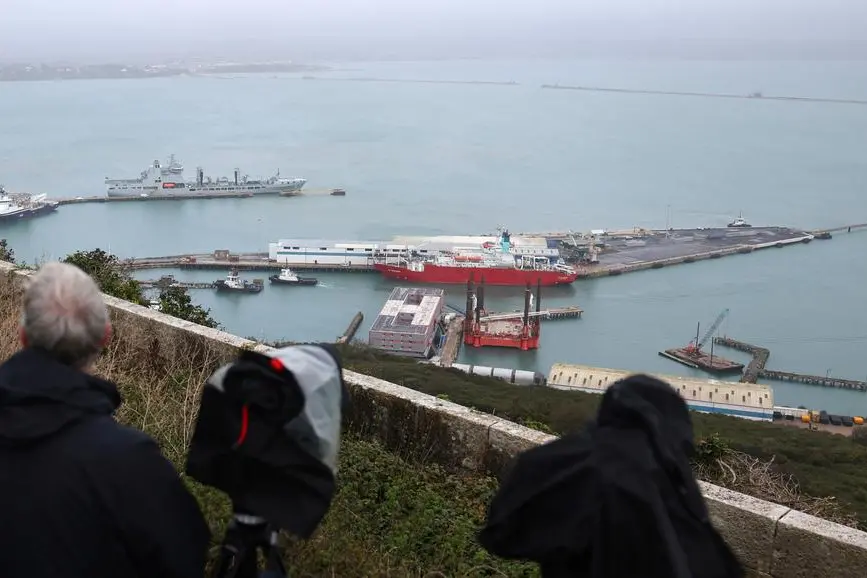PHOTO
LONDON - Britain on Tuesday said it will stop using 50 of the hotels in which it houses asylum seekers and instead rely on cheaper forms of accommodation as part of plans to deter people arriving on the south coast of England in small boats.
Prime Minister Rishi Sunak has made stopping people arriving on the boats one of his priorities after the number of asylum seekers landing on the south coast of England soared to more than 45,000 last year, up 500% in two years.
Surveys show that immigration, a key factor in the 2016 referendum vote for Britain to leave the European Union, remains a major concern for voters ahead of a national election expected next year. A majority of the public think the government is handling the issue badly.
The government argues the use of hotels is unsustainable with the cost of processing and housing asylum seekers rising to 3 billion pounds ($3.66 billion) per year, while some politicians have complained the policy has adversely impacted tourism and inflamed local tensions.
The BBC reported earlier this year that 400 hotels were being used to house asylum seekers. The UK interior ministry declined to confirm that figure.
The immigration minister Robert Jenrick told parliament on Tuesday he had written to councils to tell them that the government will end the use of the first tranche of hotels by January with the aim of cancelling more contracts in the future.
In March, about 20,000 in Britain receiving asylum support were being housed in hotel accommodation, according to the House of Commons Library.
The government has announced plans to use more mass accommodation instead, including military bases and barges.
It also wants to deport nearly all asylum seekers who arrive in Britain on small boats to Rwanda. That plan has undergone a series of legal challenges and its fate rests on a Supreme Court decision expected in mid-December. ($1 = 0.8191 pounds)
(Reporting by Andrew MacAskill; Editing by Toby Chopra)





















